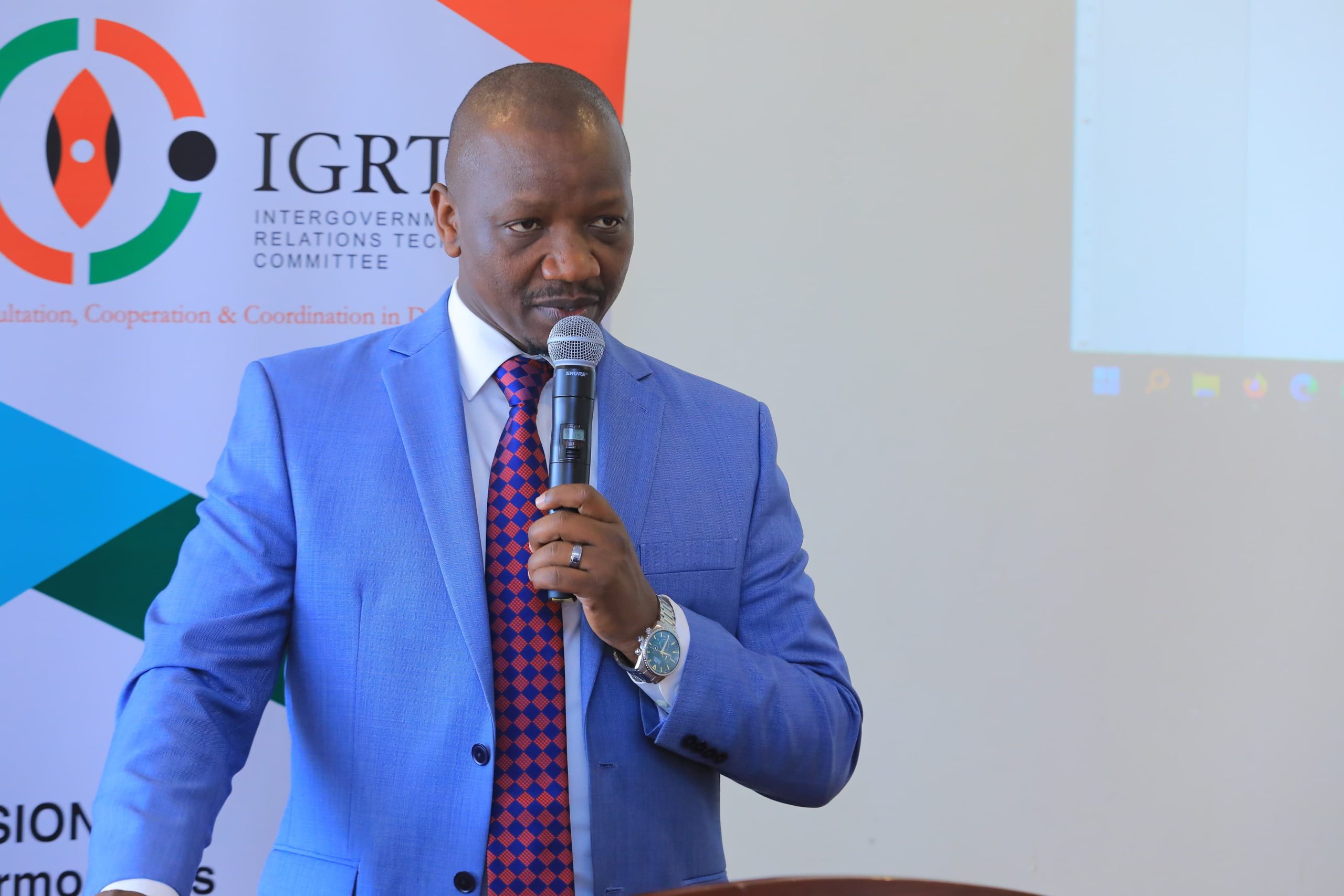
Counties to fully assume devolved functions in the 2026–2027 budget cycle
Counties are expected to fully take over all functions delineated in Kenya Gazette Vol. CXXVI – No. 219 of 16th December 2024, following the identification and allocation of corresponding human and financial resources.
The delineation of these functions was undertaken by the Intergovernmental Relations Technical Committee (IGRTC), aimed at clarifying responsibilities between the two levels of government.
Speaking during a sensitization meeting with Principal Secretaries on the Gazette Notices regarding the transfer of pending devolved functions, IGRTC CEO Dr. Kipkurui Chepkwony noted that the process initiated two years ago has been guided by the Fourth Schedule of the Constitution.
He emphasized that it has been a consultative exercise involving both levels of government and other key stakeholders, culminating in a consensus that informed the publication of the legal notice in December last year.
The meeting aims at sharing insights on the progress made by IGRTC on the process including key issues or elements that were not agreed upon and were set aside which the committee with stakeholders are currently finalizing to agree on the issues of seek interpretation from the constitutional experts to give direction.
According to the IGRTC CEO, the meeting with Principal Secretaries aimed to agree on the next steps, which include identifying the attendant resources both human and financial linked to the functions and elements outlined in the gazette notice.
This process will pave the way for financial transfers in the upcoming 2026–2027 financial year.
Dr. Chepkwony further affirmed that, as a result of the transfer of functions, some mandates currently held by existing government agencies will become redundant.
This shift will necessitate legislative reviews by both the National Assembly and the Senate to align laws with the new governance structure.
IGRTC Vice Chairperson Saadia Kontoma emphasized that the process involved Multi-Agency Task Teams working in the spirit of harmonious intergovernmental relations.
She noted that both levels of government collaborated to build consensus during the unbundling of functions. Through this process, 94 pieces of legislation with gaps hindering devolution were identified.
These gaps, she said, posed a setback to the full realization of devolution and require harmonization to align with the devolved system of governance.
While officially opening the sensitization workshop, Principal Secretary for the State Department for Devolution, Michael Loikenu Lenasalon, reiterated that devolution is a progressive process that moves from inception to full actualization.
This journey includes delineation and unbundling of functions to ensure services are delivered closer to the people, with clearly defined roles and responsibilities for both national and county governments as outlined in the Constitution of Kenya, 2010.
Judith Pareno, Principal Secretary for Justice and Constitutional Affairs in the Office of the Attorney General, affirmed that devolution remains one of the most transformative developments in Kenya’s governance framework.
She highlighted that it has brought equity and equality to historically marginalized communities.
The final transfer of functions to counties, she noted, affirms the President’s commitment as stated in his inaugural speech to ensure that all devolved functions are fully handed over to the county governments.
